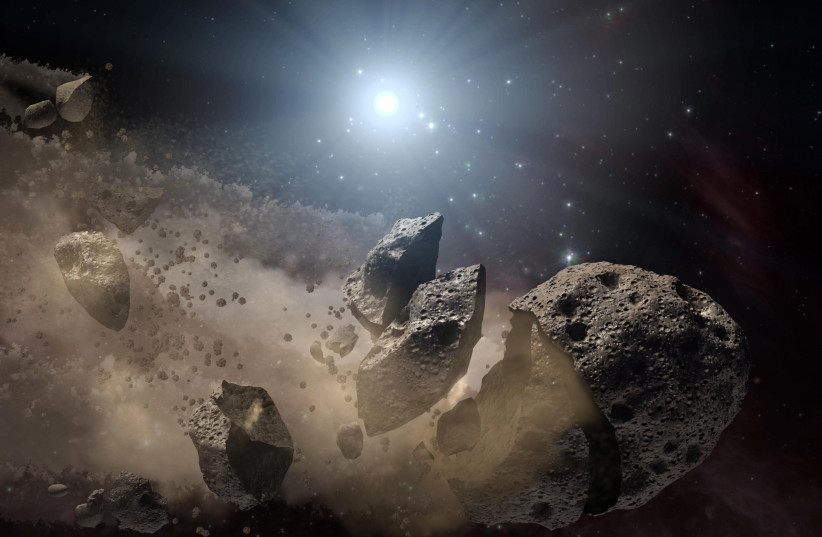A massive kilometer-sized asteroid is set to fly past the Earth later this month in what is set to be the first flyby of an asteroid of this size during 2022, according to NASA's asteroid tracker. This asteroid could cause a worldwide cataclysm if it impacted Earth, but this is thankfully extremely unlikely to happen.
Dubbed 7482 (1994 PC1), this asteroid has an estimated diameter of at least 1 kilometer, and could possibly be around 1.3 kilometers wide. For comparison, that's over four times the size of the Eiffel Tower and 3.5 times the size of New York City's Empire State Building.
The asteroid is categorized as an Apollo-class asteroid, meaning its orbit is wider than Earth's and its orbital path around the Sun can cross the path of our own planet. Further, it has also been designated a potentially hazardous asteroid by NASA.
However, an impact is extremely unlikely. According to NASA's calculations, 7482 (1994 PC1) will pass the Earth on January 18 at a distance of around 1.98 million kilometers away. For context, the Earth's distance from the moon, approximately 384,000 kilometers, is over five times less than that.
This is in line with NASA's prior predictions, which estimated that the Earth would be free of risk from any asteroid impacts within the next 100 years.

But had the Earth not been so lucky, the results could have been catastrophic.
According to research from the Davidson Institute of Science, the educational arm of Israel's Weizmann Institute of Science, an asteroid over 140 meters in diameter would release an amount of energy at least a thousand times greater than the energy released by the first atomic bomb if it impacted Earth. Something even larger – over 300 meters wide like the asteroid Apophis – could destroy an entire continent.
And an asteroid over a kilometer wide like 7482 (1994 PC1) could trigger worldwide cataclysms.
But asteroids also hold the potential to be severely beneficial for humanity, as they are rich in resources. Some of these nearby asteroids are even potential targets for future mining operations.
However, what value, if any, 7482 (1994 PC1) has is currently unknown.
